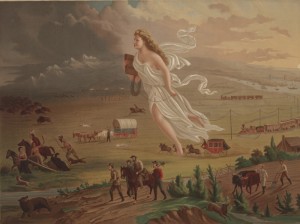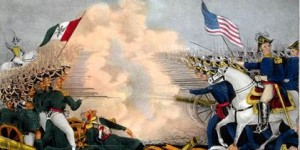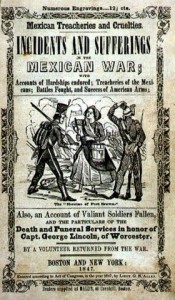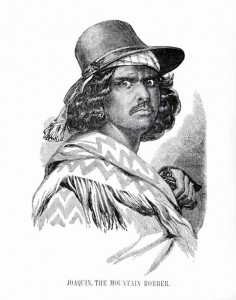
Unit Goal:
After investigating and analyzing perspectives on Mexican American War through primary documents, art, corridos and cuentos students will complete a UNIT PORTFOLIO which evaluates the impact of the annexation of Mexico’s northern territories by the United States on contemporary Mexican American culture, identity, and politics.
Essential Questions:
1. What is IDENTITY and how is it shaped by historical events?
2. How does IDENTITY shape perspetives of historical events and conflicts?
3. In what ways does literature, art, and folk culture serve to help us understand POINTS OF VIEW of historical events such as the Mexican American War?
4. What do folk traditions such as corridos and cuentos reveal about the impact of the Mexican American War on Mexican American identities and culture?
Unit Terms:
Manifest Destiny, metanarrative, counternarrative, subaltern, subversion frontier, symbols/ symbolism, archetypes, corridos, cuentos, point of view, motivation, Treaty of Guadalupe Hidalgo
Objective 1: Historical Context
After completing CORNELL NOTES on video, “Foreigners in their Own Lands” students will be able to write a summary that identifies significant historical contexts and issues which resulted from the Mexican American War.
I. Pre-Reading: Cornell Notes Guide and Instructions.
II. Reading: Foreigners in their Own Land
III. Analytical Summary
 Objective 2: Metanarrative of Manifest Destiny
Objective 2: Metanarrative of Manifest Destiny
I. Pre-Reading: Art Analysis, “American Progress” by John Gast
II. Reading: “The Great Nation of Futurity” by John O’Sullivan, “The Power of an Idea” by Miguel Ángel González Quiroga, “Native American Displacement Amid U.S. Expansion” A Conversation With R. David Edmunds from University of Texas at Dallas, “Never Forget” by Lalo Alcaraz
III. Post Reading: Analytical Summary, SOAPS ANALYSIS, FOUR SQUARE DISCUSSION
Objective 3: Masculine Archetypes & Corridos as Counternarratives
I. Pre-Reading: What is a corrido? an archetype? Why study corridos and folk culture?
II. Reading: Americo Paredes Background: El Corrido de Joaquin Murrieta, El Corrido de Gregorio Cortez
III. Post-Reading: Analytical Summary, SOAPS ANALYSIS, Write your Own Corrido
 Objective 4: Feminine Archetypes & Cuentos as Counternarratives
Objective 4: Feminine Archetypes & Cuentos as Counternarratives
I. Pre-reading: What is a cuento or a folk tale? What is its function? Who is LA LLORONA?
II. Reading: “La Llorona“, Spiritual Cleansing: A Mexican Ghost Story, “Woman Hollering Creek” by Sandra Cisneros, “La Llorona’s Sacred Waters” by Juana Alicia
III. Post Reading: Analytical Summary, SOAPS Analysis, Write your Own Cuento starring La Llorona
Objective 5: The Birth of Mexican American